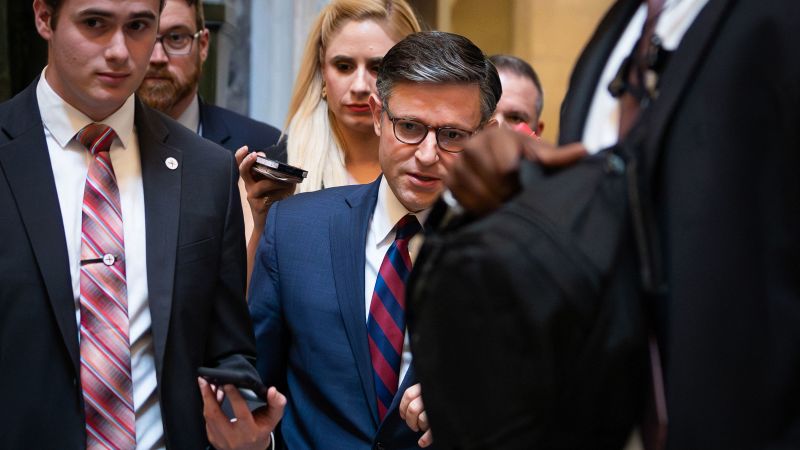A recent House vote swiftly shut down Republican Rep. Marjorie Taylor Greene’s attempt to oust Speaker Mike Johnson from his leadership position, with support from Democrats securing Johnson’s position for the time being. The failed ouster effort gives Johnson a chance to focus on other issues with a show of confidence from his colleagues while potentially opening him up to criticism from the right flank for accepting support from Democrats. Following the vote, Johnson called Greene’s campaign against him “misguided” and expressed gratitude for his colleagues’ support. Despite the outcome, Greene did not rule out triggering another vote against Johnson in the future, pointing to a statement from former President Trump on Truth Social as supporting the potential for a motion to vacate at some point.
Greene’s push to remove Johnson reopened divisions within the House GOP conference as members weighed in on the matter. Johnson was elected speaker last year after the ousting of former Speaker Kevin McCarthy, which led to a tumultuous period of infighting before Republicans eventually united around Johnson. The House voted overwhelmingly to table Greene’s motion to remove Johnson, with 11 Republicans voting against tabling. House Democratic leadership had announced their support to help Johnson keep his job by voting to table the motion following Johnson’s contentious push to pass a major foreign aid package over objections from hardline conservatives.
Despite discussions between Greene, Johnson, and Rep. Thomas Massie earlier in the week, Greene’s decision to trigger the motion to vacate the chair caught House Republicans off guard. The move started a clock for GOP leaders to hold a vote on her measure, leading to surprise and shock among Republican representatives. Greene has indicated that she may consider forcing another vote against Johnson in the future, citing support from Trump and his statement on Truth Social. While Greene did not directly answer whether she would initiate another vote this Congress, she expressed gratitude for Trump’s support and emphasized her alignment with his views. The unexpected turn of events has left GOP leadership surprised and scrambling to address the fallout from Greene’s actions.
The outcome of the House vote to table Greene’s motion has implications for the future dynamic within the Republican Party as divisions become more pronounced. Johnson’s survival as speaker has provided him with an opportunity to move forward with his agenda while managing the delicate balance of a razor-thin majority in the House. Greene’s challenge to Johnson’s leadership has drawn attention to the internal struggles within the GOP and highlighted the ongoing power struggles within the party. While Greene may continue to push for a vote against Johnson in the future, the House’s resounding support for tabling her motion signals the current direction of the party and the challenges facing Republican leadership in navigating these contentious issues.
The interaction between Greene, Johnson, and other Republican leaders underscores the tensions within the House GOP conference and the challenges of maintaining unity while addressing internal disagreements. Johnson’s task of unifying the party and moving forward with his leadership agenda after surviving Greene’s challenge will be crucial in determining the party’s direction in the coming months. The unexpected nature of Greene’s motion and the subsequent vote highlights the unpredictability and volatility of House politics, with implications for both Republican leadership and the party as a whole. As the dust settles from this episode, the aftermath and long-term repercussions for the GOP remain to be seen, shaped by the ongoing dynamics and power struggles within the party.


